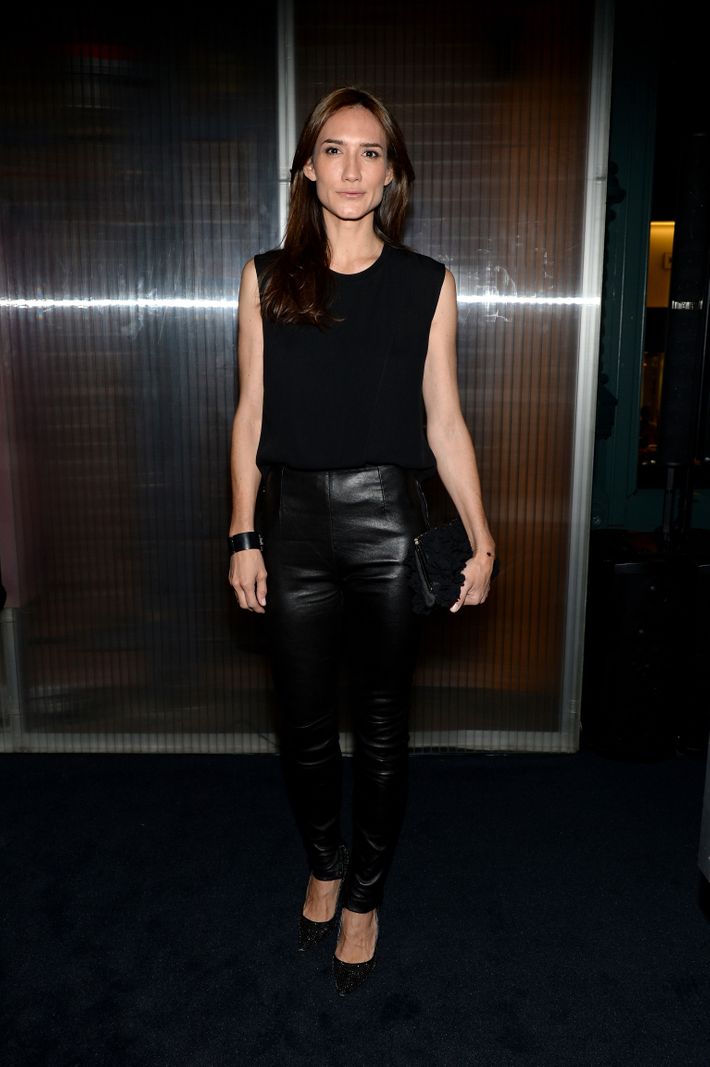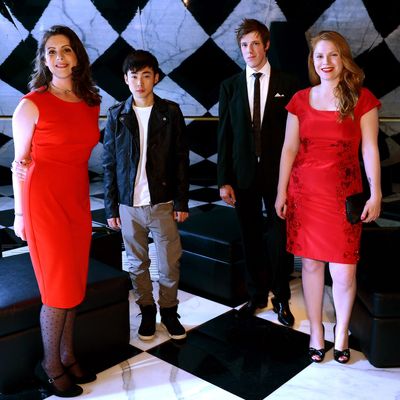
Last night at Prada’s New York Epicenter store on Broadway, the luxe Italian fashion brand continued with its arty mission of fostering new talent, this time through a high-brow literary reading. In the flagship store in SoHo, a well-dressed crowd of writers, actors, and fashion folk gathered to hear writers like Jonathan Ames, Jay McInerney, and Gary Shteyngart read excerpts of stories by the five winners of the first Prada Journal literary contest — Mattia Conti, Leisl Egan, Angel Mario Fernández, Sarah Harris Wallman, and Peng Yang. The global search for creative writers inspired by glasses first began on April 18 with the prompt: What are the realities that our eyes give back to us? And how are these realities filtered through lenses? The writers won 5,000 euros each and the short stories will be published in a digital book available on Prada’s site before the end of the year. For a sneak peek, read an excerpt from Yang’s “Gray Story” below, or click through the slideshow to see the party.
Arrival in Qizhuang by Peng Yang
One year, in the middle of summer, two strange events took place in Qizhuang: a strange rain fell and a strange person arrived.
As the inhabitants of Qizhuang remember it, the strange rain appeared suddenly, in a violent burst, like a complaint made by the sky, and then it fell steadily for four days and three nights in a row.
At first, it was a fine, light rain. From the blazing sun and the celestial vault fell countless needles that beat down on the graphite shingles of the roofs of Qizhuang. Given the unbearable summer heat, it was a real blessing for the people of the town.
After a few hours, however, the rain intensified exorbitantly, like the implacable cry of a newborn. Rumbling and thundering, the storm tore down five or six of the flags that had been firmly planted in front of the door to every house; it swelled the level of the River Ling that gurgled in the center of Qizhuang; and it flooded the little houses and light-brown boats along the embankments, shattering them.
The inhabitants of Qizhuang were generally very proud of their embroidered flags, which could be of cotton, linen, silk or satin, and in any color: reds, yellows, greens or blacks. They were symbols of the celebrated local craftsmanship, but when they were swept away by the flood’s fury they looked like a school of frantic carp.
It occurred to no one to hole up safe at home, even if that ferocious, convulsing hurricane was something never seen before. Instead, the townspeople hurried to the River Ling to rescue the children who had fallen into the water and to salvage their belongings floating there.
In the relay of responders, those holding down the front line were the Bais, a husband and his wife, on their shadow-theater barge.
Even though they were over fifty, they were a fearless couple. The husband rowed from the bow while his wife did the rescuing. In her flowered dress, the woman with eagle eyes and the agility of a panther, held on to the edge of the boat with one hand and used the other as a giant ladle for fishing out anything of value: children, suitcases, bank notes … thanks to her, they were all hauled to safety. By the middle of the night, strung with lanterns reflected by the water, the shadow-theater barge had become an actual lifeboat.
When the rain god retreated, the Bais docked to return the children, suitcases, and bank notes to their rightful owners, after which, together with the men and women of the town, they dug a trench to drain the floodwaters and helped those who had been inundated rebuild their houses.
It was at this point that the strange person made his arrival in Qizhuang.
Madam Bai was picking up debris on the bank of the River Ling when suddenly she saw a black dot, neither large nor small, floating in the waves.
Only when the black dot was in front of her did she see that it was a round bamboo basket containing a baby still in diapers. The newborn was dressed in a coverall, with white and blue decorations typical of ceramics, and was lying on a thick bed of rags. From a series of clues, Madam Bai deduced that it was a child abandoned by someone not from that area.
In spite of the situation, Madam Bai struggled to suppress her joy.
With the basket on her head, she raced to Mister Bai and breathlessly told him what had happened, at the end exclaiming, through her tears: “We are childless, Bai. Let us adopt this little boy who has escaped so much danger!”.
His eyes brimming with tenderness, Mister Bai looked at the rosy, chubby bundle and said: “We don’t need to adopt him. The heavens and the god of the River Ling sent him to us”.
He gave the cherub’s chubby cheeks an affectionate pinch − the child was extraordinarily calm − and added, his eyes reduced to two lines by his smile: “And you, so nice and round like a pebble? From now on we’ll call you Roly-Poly”.
The news soon traveled around Qizhuang.
The townspeople thought it had to be a reward, given to the Bais by the god of the earth for the rescue work they had done.
The townspeople also noted, however, that Roly-Poly, who had survived treacherous waves in his basket, and now in the arms of Madam Bai was being showered with affection and the wondering gaze of the curious people who had come to Qizhuang attracted by the news, was very tranquil in his scrutiny of the world, with clear eyes and not a cry or a sound.
“Madam Bai! He is very strange, this baby! Usually babies babble, but he does not react to danger, nor does he get nervous from all the confusion. It is really strange.”
These were the comments of the elderly townspeople, and, hearing them, the Bais lit up, their hearts full of joy.
Until the child turned one, as ever splendidly silent, when they realized that he was mute.
—-
Published with permission from Prada
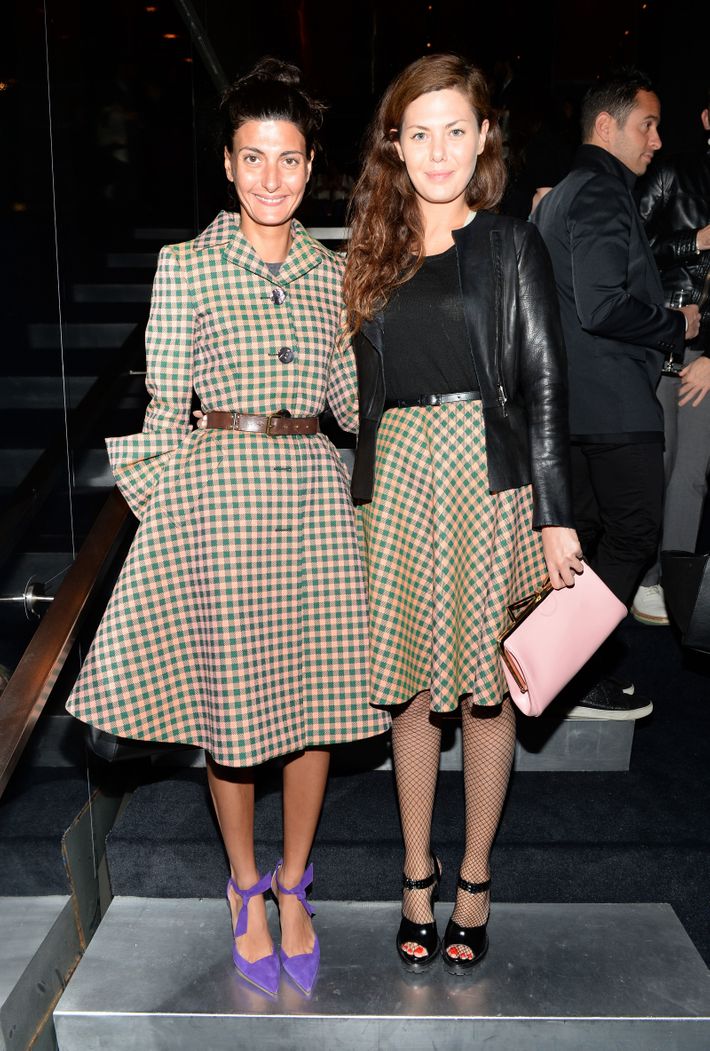
Giovanna Battaglia, Sara Battaglia
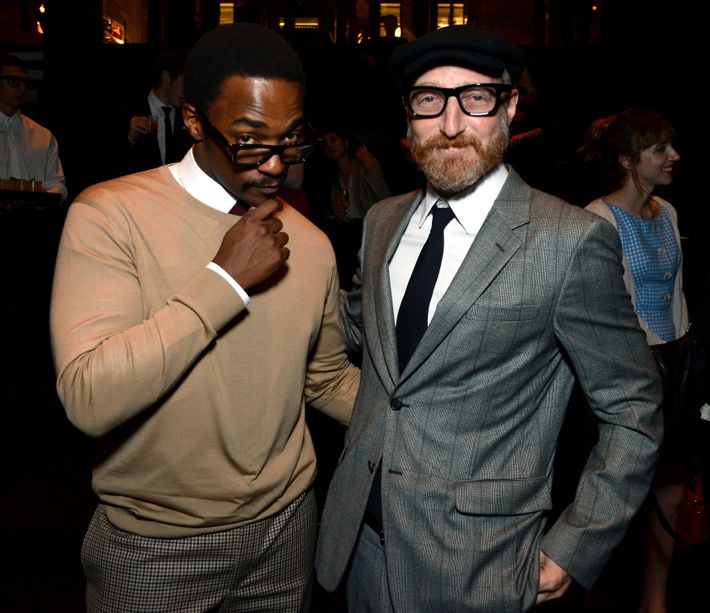
Anthony Mackie, Jonathan Ames
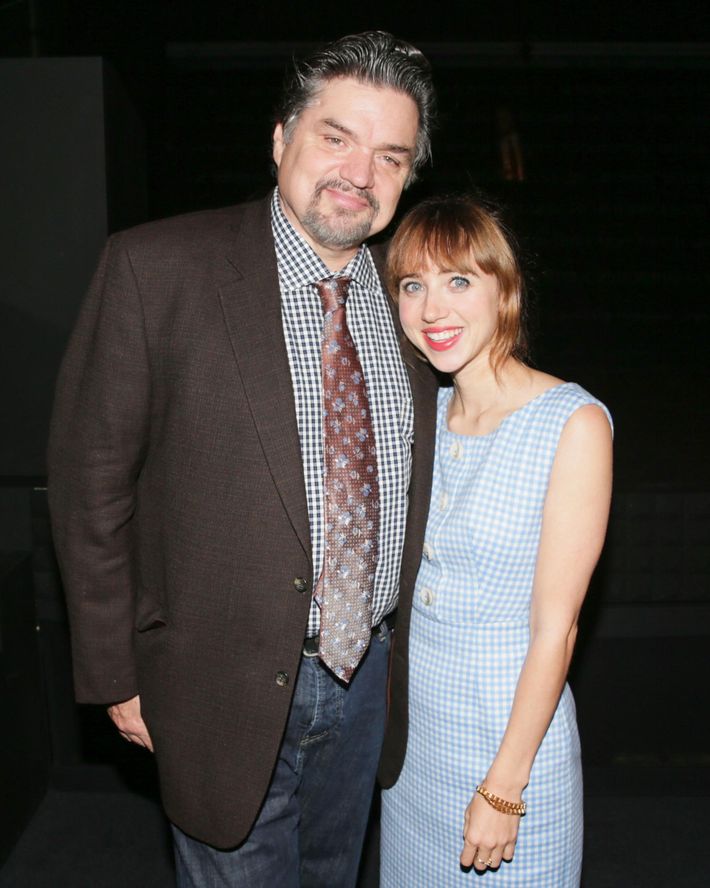
Oliver Platt, Zoe Kazan
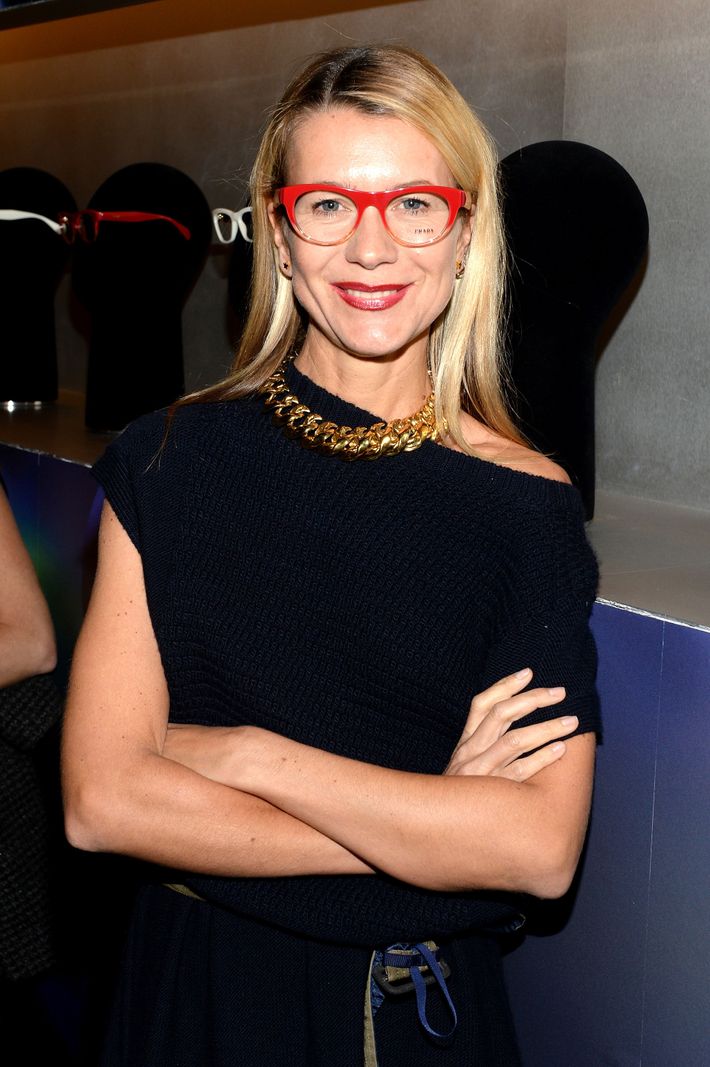
Natalie Joos
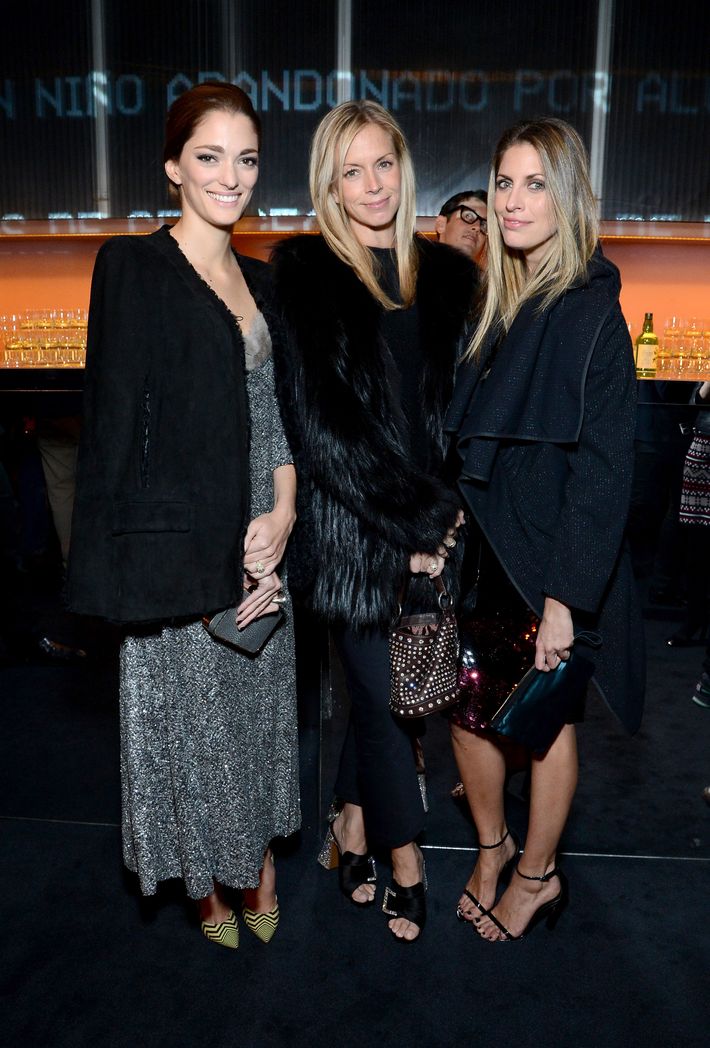
Sofia Sanchez Barrenechea, Meredith Melling Burke, and Valerie Boster
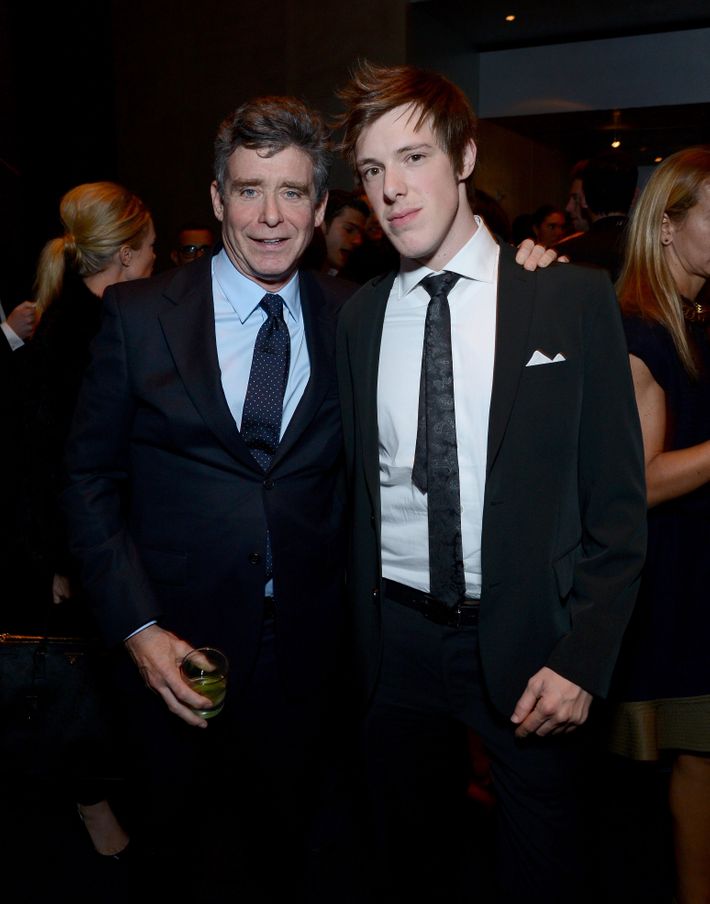
Jay McInerney, Mattia Conti
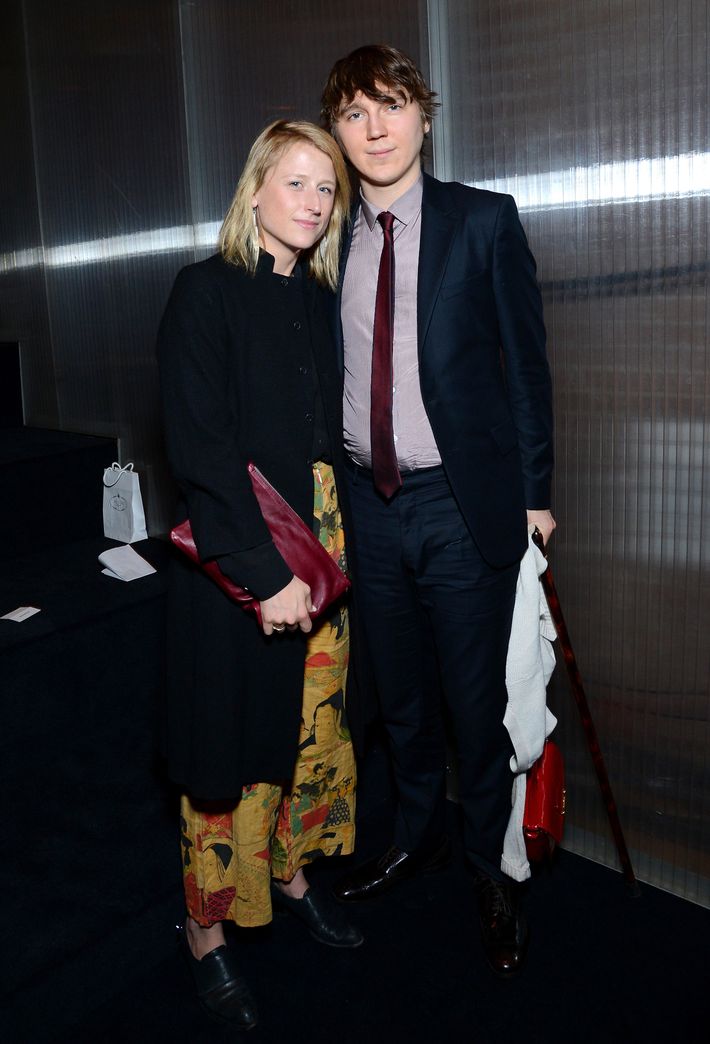
Mamie Gummer, Paul Dano
